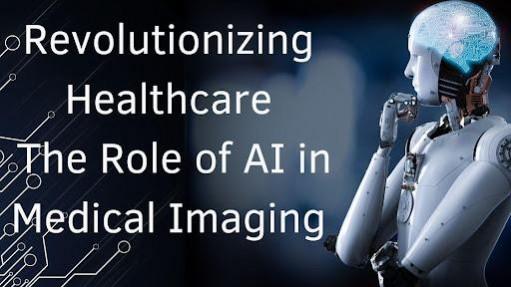
In today's fast-paced technological landscape, artificial intelligence (AI) is redefining the way healthcare professionals diagnose and treat diseases. One of the most impactful innovations lies in integrating computer vision in medical imaging, a development that enhances diagnostic accuracy and efficiency. Bhavyateja Potineni, an expert in AI-driven medical technologies, has extensively analyzed this transformation. His research sheds light on how computer vision is streamlining image analysis, supporting radiologists, and advancing personalized medicine.
The Power of AI in Image Analysis
Medical imaging is a cornerstone of modern healthcare, enabling the detection and monitoring of diseases through X-rays, MRIs, CT scans, and ultrasounds. However, traditional interpretation methods are time-consuming and subject to human error. AI-powered computer vision algorithms are now transforming the field by rapidly analyzing vast datasets with exceptional precision. Studies show that deep learning models achieve diagnostic accuracy rates comparable to healthcare professionals, demonstrating sensitivity and specificity improvements over traditional assessments.
Enhancing Early Disease Detection
One of the most promising applications of AI in medical imaging is its ability to detect diseases at earlier stages. AI-assisted mammography, for instance, has shown a significant reduction in false negatives and false positives, leading to earlier detection of breast cancer. Similarly, AI-driven lung nodule analysis through low-dose CT scans has enhanced sensitivity levels, allowing for better identification of potential malignancies. These advancements are not only improving patient outcomes but also reducing the workload for medical professionals.
Retinal Scanning and Predictive Health Insights
Beyond traditional imaging, AI has demonstrated remarkable potential in retinal analysis. By examining retinal scans, AI algorithms can detect conditions such as diabetic retinopathy, age-related macular degeneration, and glaucoma with high accuracy. More impressively, AI-driven retinal analysis is providing new insights into cardiovascular health by identifying patterns linked to hypertension, diabetes, and other systemic conditions. This innovation paves the way for non-invasive, early-stage disease prediction and prevention.
Transforming Digital Pathology
Digital pathology is another frontier where AI is making a profound impact. Whole-slide imaging allows AI models to analyze tissue samples with unparalleled accuracy, enhancing the detection of cancerous cells. These models are particularly effective in identifying micrometastases that may be overlooked by human pathologists. AI is also being used to assess tumor grading and predict genetic mutations based on histopathological patterns, opening new doors for precision medicine.
Overcoming Challenges in AI Implementation
Despite the transformative potential of AI in medical imaging, challenges remain. A major hurdle is the need for large, diverse, and well-annotated datasets to train AI models effectively. Additionally, the "black box" nature of deep learning algorithms raises concerns about interpretability and trust among healthcare professionals. To address these issues, researchers are developing explainable AI models and integrating attention mapping techniques to enhance transparency. Regulatory considerations also play a crucial role, as governing bodies work to establish guidelines that balance innovation with patient safety.
The Future of AI in Medical Imaging
The future of AI in medical imaging is poised for further breakthroughs. Emerging technologies such as multimodal learning, self-supervised training, and foundation models are enhancing AI's ability to analyze diverse datasets with minimal supervision. These innovations will likely reduce the dependency on extensive labeled data while improving diagnostic performance. Additionally, AI-driven "digital twin" models, which simulate a patient's medical profile, are set to revolutionize personalized treatment plans by predicting disease progression and treatment responses.
In conclusion, Bhavyateja Potineni's research highlights the transformative potential of AI-powered computer vision in medical imaging. By improving diagnostic accuracy, enhancing early disease detection, and facilitating personalized treatment approaches, AI is reshaping the healthcare landscape. As advancements continue, AI-integrated medical imaging systems will play a pivotal role in making healthcare more precise, efficient, and accessible to patients worldwide.















